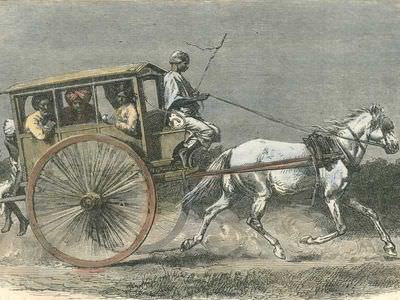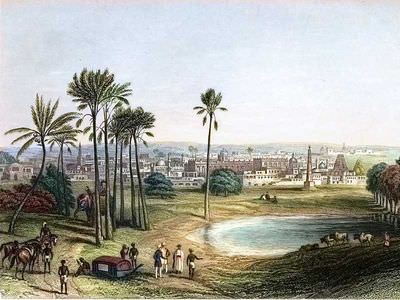The East India Company: Laying the Foundations for British Colonial Domination of India, 1752-1774

The Indian papers of Colonel Clive and Brigadier-General Carnac, 1752-1774
This collection is of the greatest importance to those who wish fully to explore the often controversial events that preceded, accompanied, and followed the establishment of Britain's Indian empire during the mid-eighteenth centurySwansea University
Access the full collection
Get full access to The East India Company: Laying the Foundations for British Colonial Domination of India, 1752-1774.
Institutional Free Trial
Sign up for a FREE trialSingle User License
Purchase a license below to view the full collection.
Already have a license? Sign in to view the collection
Learn how India was defeated and claimed by the Empire under company rule

This collection provides a unique perspective on the complex geopolitical circumstances of India during the 18th century, and how the foundations of British colonialism were established through the activities and campaigns of the East India Company. Drawing from the personal and professional papers of two East India Company employees, Colonel Robert Clive and Brigadier-General John Carnac, the collection offers an insight into how the East India Company became increasingly influential after the weakening of the Mughal Empire during the 18th century.
Robert Clive was a British military commander and eventual Governor of Bengal. Through his political and military actions in India, he amassed vast personal wealth and played a key role in laying the foundations for British domination of India for the next few centuries. John Carnac served as Commander-in-Chief of the East India Company in India between 1760-1761, defeating the French supported forces of the Mughal Empire. He worked in tandem with Clive as they systematically expanded British influence on the subcontinent. Together, the the papers enable researchers to study how the burgeoning commercial and political power of the East India Company turned into monolithic rule of the Indian subcontinent.
Contents
The East India Company: Laying the Foundations for British Colonial Domination of India, 1752-1774...
The Indian papers of Colonel Clive and Brigadier-General Carnac, 1752-1774
Discover
Highlights

Licensed to access Correspondence from Clive’s second period in India, 1756-1760

Licensed to access Correspondence between Governor Clive and Indian rulers, 1763
Insights
- This collection covers a period in which employees of the East India Company, like Robert Clive and John Carnac, laid the foundations for the eventual complete colonial domination of India under the British Crown.
- The documents cover key flashpoints from East Indian Company expansion in India, including the Battle of Plassey 1757, military campaigns against the French and the signing of the Treaty of Allahabad in 1765.
- The papers cover both men’s’ military actions, as well as their hand in the governance of regions under rule of the East India Company. Like many of his colonial peers, Robert Clive used his position as Governor of Bengal to amass great personal wealth at the expense of just or competent governance.
- Indeed, the East India Company was famously corrupt and it’s wayward administration resulted in considerable hardship for the Indian population. One key manifestation of this miserable rule was the Bengali Famine of 1770, in which up to one-third of the native population died from starvation.
- Also included in the collection are Robert Clive’s papers of a more personal nature, offering an insight into the lifestyle and ruminations of the Colonel, and showing how he funneled his vast wealth from India to Britain, building and expanding his country estates.
- Over the next one hundred years, the East India Company, acting on behalf of the British Crown, would come to dominate the Indian subcontinent and establish a brutal regime which extracted India’s natural wealth and exploited the native workforce.






